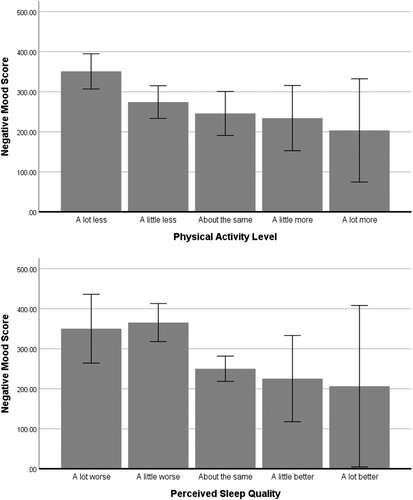Lockdown restrictions led to poorer health behaviors in Scotland and Japan

Strict lockdown restrictions during peak periods of the COVID-19 pandemic have been linked to poorer health behaviors such as drinking more and exercising less.
The research, led by the University of Glasgow and the University of the West of Scotland (UWS), in partnership with Dr. Yuko Hijikata of the University of Tsukuba in Japan, has shown that the tight restrictions in Scotland led to people changing their health behaviors negatively, while less rigid restrictions in Japan were linked to relatively stable health behaviors.
The study also found that, in Scotland, people's mood was linked to changes in health behaviors, with those who were less physically active, or who were experiencing poorer-quality sleep, showing poorer mood. Despite a less-restrictive lockdown, Japanese people reported poorer mood than people in Scotland, but not greater feelings of isolation.
Dr. Joanne Ingram, Lecturer in the School of Education and Social Science at UWS, said: "Overall, we found that undergoing a period of self-isolation or experiencing a large change in circumstances—such as a change to work—because of the pandemic, was linked to changes towards more unhealthy behaviors."
Dr. Christopher Hand, Senior Lecturer in Psychology at the University of Glasgow, who co-authored the report, said: "Although the different styles of lockdown in each country resulted in different patterns of behavior and mood, what is clear is that pandemic management efforts have impacted different people in different but meaningful ways. Our data shows that we need to support positive changes to health behaviors to facilitate personal and national pandemic recovery."
The study asked people in Scotland and Japan to consider how their health behaviors (alcohol consumption, diet, sleep quality, and physical activity) had changed since the beginning of the COVID-19 pandemic. The study found that:
- In both Scotland and Japan, a period of self-isolation was associated with an increase in alcohol consumption and a change to an unhealthier diet.
- In Japan only, self-isolation was linked to poorer sleep quality.
- In both Scotland and Japan, having children at home was associated with a change to an unhealthier diet.
- In Scotland only, having children at home was associated with an increase in alcohol consumption.
- In Scotland only, a change to work circumstances was linked to both poorer sleep quality and less physical activity.
- In general, a move to more negative health behaviors was associated with a greater feeling of isolation.
Dr. Ingram added: "Our results are particularly relevant in Scotland at this point, as many of us consider returning to the office in light of recent increases in COVID-19 cases. Whilst the best balance will be different for everyone, it is clear that reducing feelings of isolation may lead to a better range of health behaviors and better health overall."
More information: Joanne Ingram et al, Exploring the effects of COVID-19 restrictions on wellbeing across different styles of lockdown, Health Psychology Open (2022). DOI: 10.1177/20551029221099800


















